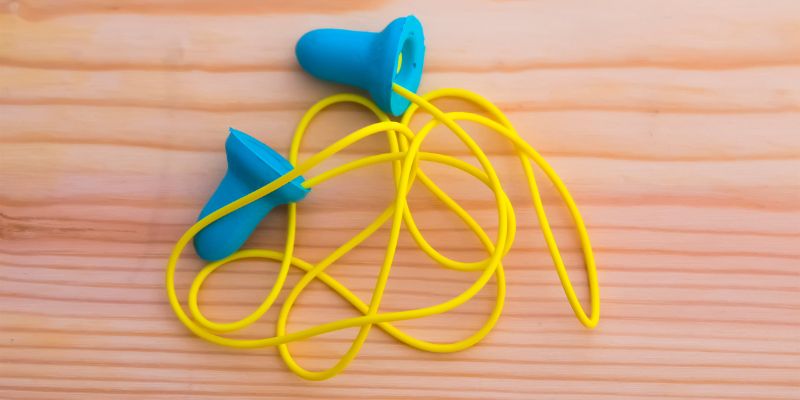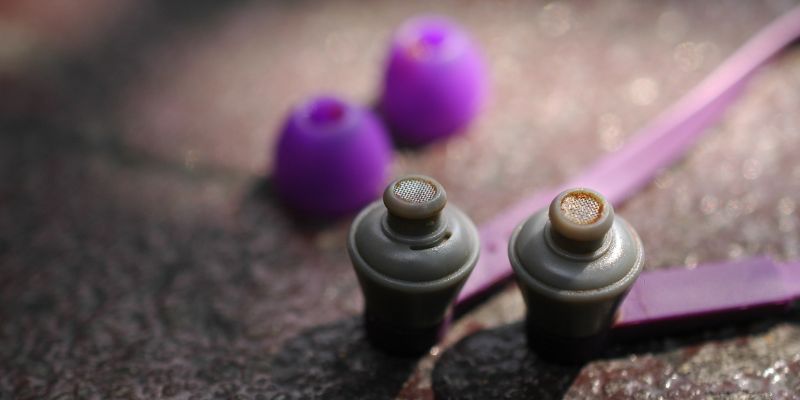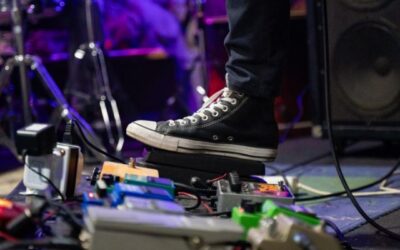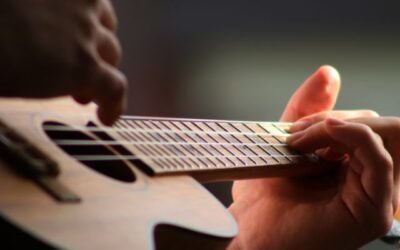What’s the key to having a long and healthy musical career? Is it practising every day? Playing as many shows as you can? Putting out music frequently?
While all these things are obviously important, it’s easy to sometimes forget the real reason you’re able to perform and write songs: your ears! One of the unfortunate realities of being a musician is having to put yourself in many situations where noise levels can get high, sometimes even dangerously so. This includes playing in (and going to) live shows; and practising in jam rooms, rehearsal spaces, and sometimes (especially if you’re a drummer), even your own home.

Being exposed to super loud noises over time increases the risk of developing hearing loss and other issues. A very common problem among musicians is a condition called ‘Tinnitus’, which shows up as a ringing or buzzing sound in the ears even when there’s no actual noise outside.
The measurement of sound is done in decibels (dB). As the decibel level of a noise increases, so does the likelihood that prolonged exposure to it might lead to permanent hearing damage. For example, the noise level of a regular conversation would clock in around 60 dB, whereas something extremely loud, like fireworks, would be around 140 dB. In terms of music, a loud concert might be around 110 dB. Even less than five minutes of being at a live show without protection puts you at risk.
Luckily, protecting your ears is a simple task that will pay huge dividends for you and your music in the long run. Let’s go over some of the different ways you can prepare for some of the most common scenarios where your ears can get damaged:
Ear Plugs
Let’s say your guitarist recently got a new distortion pedal and has been very liberal with amp volume settings since. Or maybe, the drummer has really been getting into heavy metal and insists on playing as loudly as possible every time you jam. Foam earplugs are the cheapest and quickest way to make sure that you block out a good deal of excess noise coming from instruments in the jam room.
You can usually buy them in bulk at very affordable rates, and all you have to do is plug them in like a pair of regular earphones.

These earplugs are also great to carry when going for a live concert or show. Although it seems counterintuitive to be hearing less at a show, your ears will thank you years down the line when your hearing is still intact! In general, it’s also a good idea to make sure that music doesn’t get too loud while listening on headphones or speakers, as that could easily be a long-term contributing factor to ear damage.
Using IEMs for Monitoring
There’s also a few things that musicians themselves can do while performing live to minimise the risk of permanent damage to their ears. We saw in our last post how wearing In-Ear Monitors (IEMs) can actually help reduce the overall level of sound for a band if they are used in place of wedges on stage.
With the built-in isolation that IEMs offer, you can create a personally tailored mix in your own ears at a much lower volume than having to rely on wedges to hear yourself and other band members. IEMs also eliminate much of the extra noise that wedges produce, such as feedback from different instruments.
Pete Townshend of The Who, one of the most famous rock bands in history, has called his tinnitus “painful and frustrating.” Brian Johnson, the lead singer of AC/DC, had his career threatened by severe hearing loss and was told by doctors that he could no longer perform during live tours without risking further damage.

Taking care of your ears is one of the most important things a musician can do, for the sake of both themselves and the music that they create. Fortunately, it’s also a habit that’s easy to get into with barely any inconvenience or effect on the music. Take care of your ears, and they’ll take care of you with all the pleasures that music has to offer!
If you ever feel like you may have done some damage to your ears, please see a doctor or specialist who can help you out with ways to be more protected in the future.



